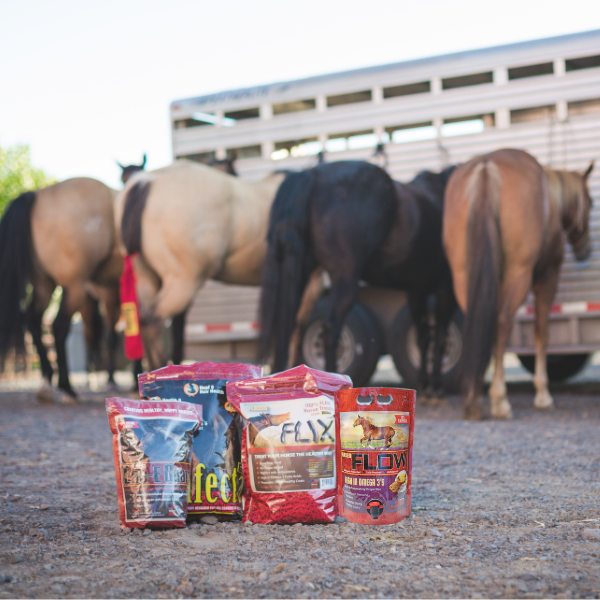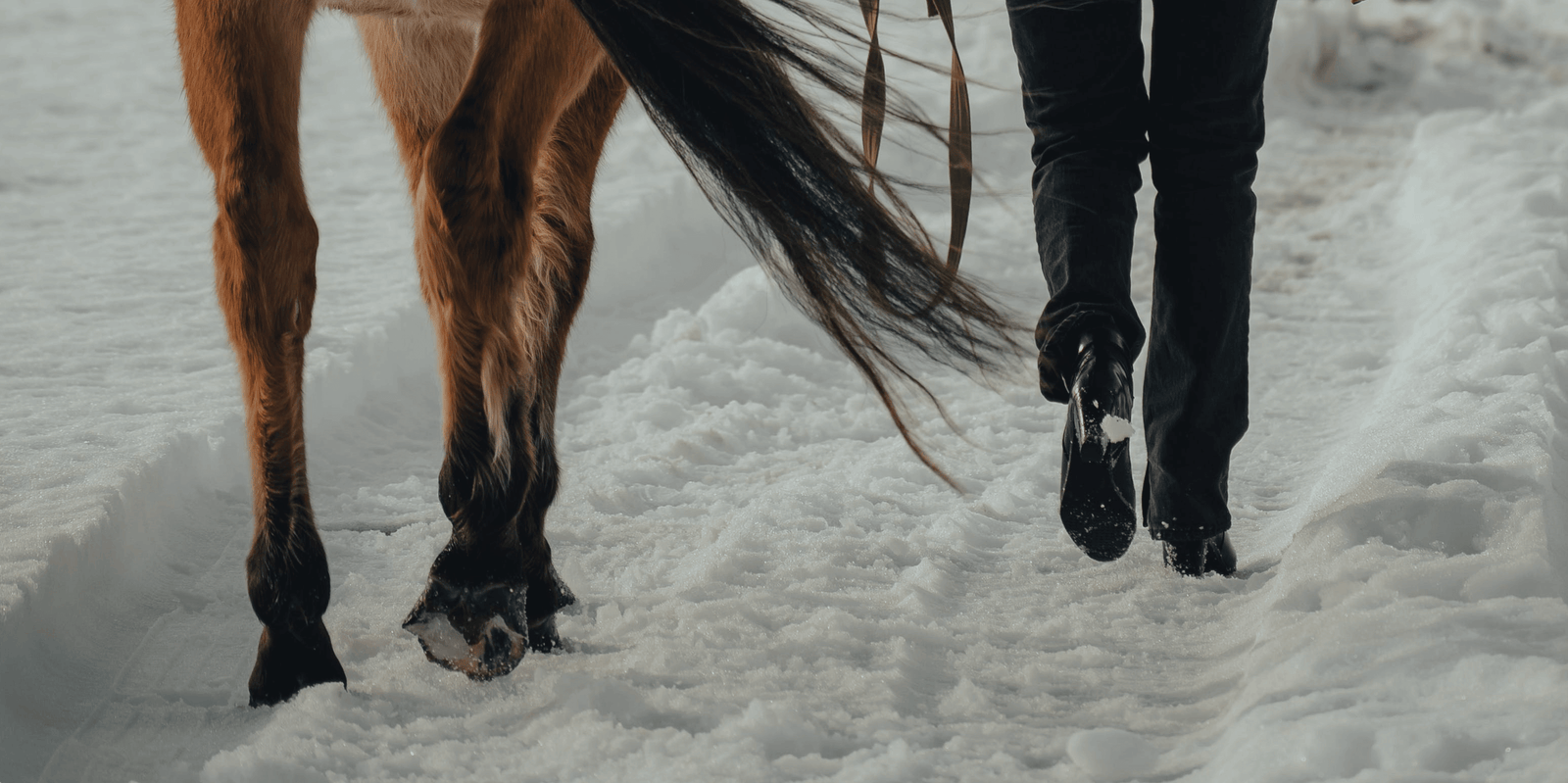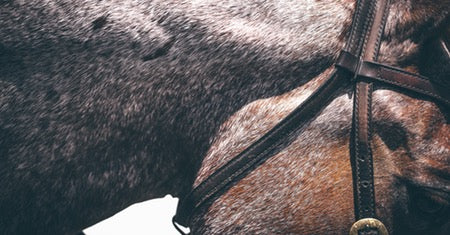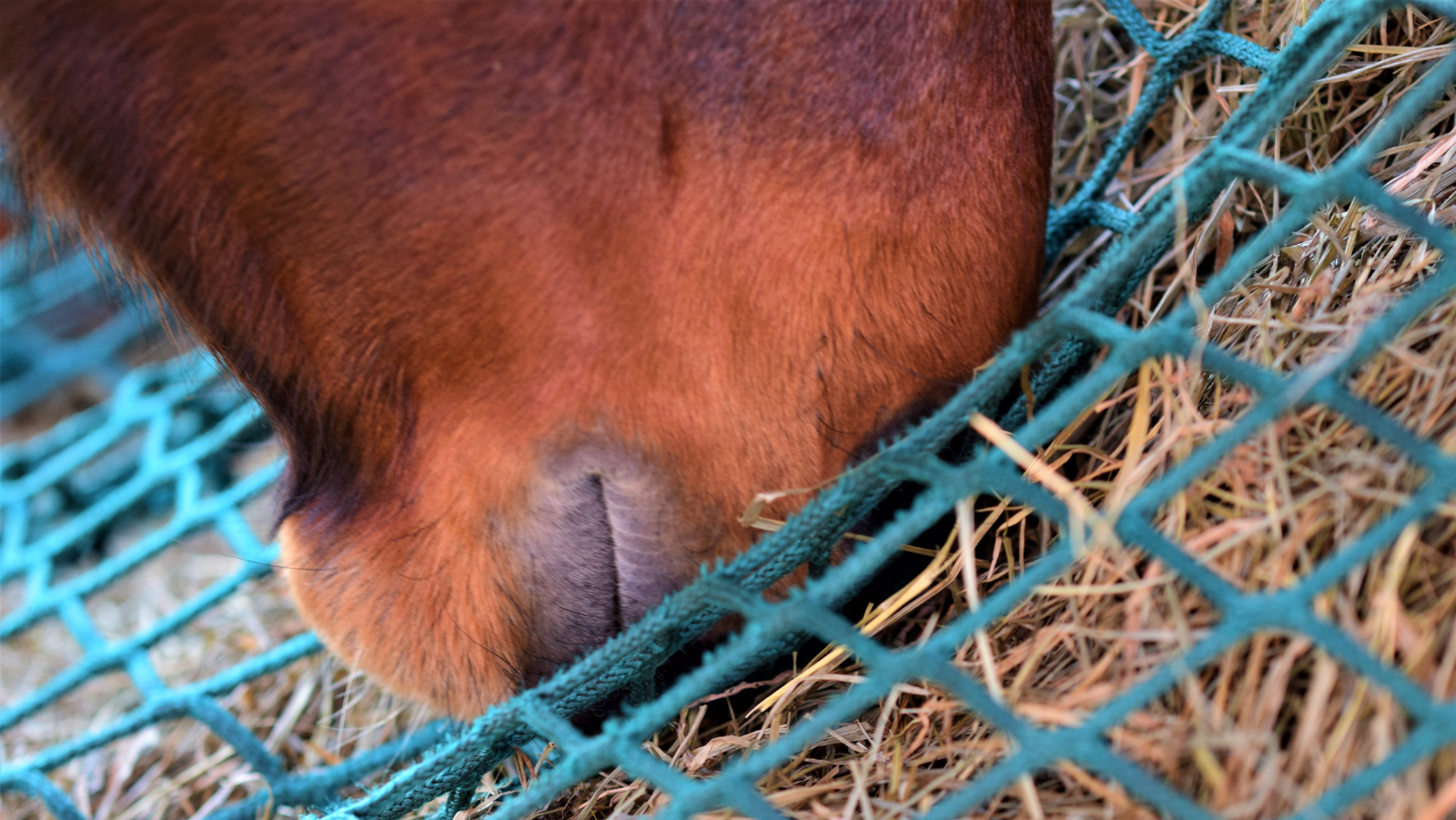Help your horse put their best hoof forward this winter! Remember no hoof no horse!
Winter is here and with that comes colder weather and more moisture in most parts of the country. These colder temperatures can take a toll on your horses including their hooves. Although hooves not only grow slower in the winter they are susceptible to several season-specific problems and therefore regular hoof care is just as important during the winter as the rest of the year. In this article, we explore some of the hoof issues that your horse might run into during the winter months and some preventative tips we recommend.
Winter Hoof Conditions
Snowballing
This occurs when snow gets impacted into the contours of the horse’s soles leading them to walk precariously on a packed mass. This can cause the horse discomfort and put a strain on the tendons, ligaments, and joints. Falling on slippery surfaces also becomes a danger. Pressure from this balling up can also cause bruising of the sensitive sole which can lead to pain and even abscesses. This situation can be exacerbated when the horse is wearing shoes. If your horse wears shoes during the winter, talk to your farrier about options that can help reduce the chances of snowballing occurring.
Abscesses

In many parts of the country, winter means alternating periods of wet and dry weather. These conditions cause the hoof wall to continually expand and contract allowing bacteria to invade the capsules where they can multiply and produce a painful abscess.
Bacteria invading the hoof capsule via a wound or the protective outer layers of the sole can work their way into the sensitive laminae, multiply, and produce a painful abscess that can cause acute lameness. Even a sole bruise caused by a stone or snowballing can develop into an abscess.
Thrush
Thrush is a foul-smelling bacterial infection developing in the sulci. As thrush takes hold a black discharge develops and the frog begins to become spongy detaching from the structure below. While thrush can happen any time of year, the wet and muddy winter conditions and increased stall time can exacerbate the likelihood of foot infections.
Laminitis
Laminitis is an infection of the foot laminae. This can lead to founder, a painful condition in which the coffin bone in the middle of the foot becomes unstable and begins to rotate. Laminitis can be a concern in the winter if your horse’s grain ration is not cut back in conjunction with a decrease in exercise, and they gain excessive weight. It can also occur from trauma to the sole due to walking on rough, frozen ground.
White line disease (seedy toe)
White Line Disease is the degeneration of the horn at the white line leads to the separation of the hoof wall from the underlying structures and weakens the hoof wall.
No single factor has been proven to cause WLD but the following factors all play a part:
- Infections: both fungal and bacterial organisms
- Mechanical: increased separating forces can be caused by long toes, poor conformation, and hoof imbalances
- Nutritional – poor quality horn due to deficiencies or imbalances in diet
- Environmental: wet, unhygienic conditions soften the horn allowing penetration of bacteria. Also, excessively dry hooves are prone to cracks and fissures allowing bacteria to enter.

Preventative Tips For Avoiding These Hoof Ailments:
- Keep your horse’s living area as clean and dry as possible
- Pick and clean hooves daily
- Continue farrier care throughout the winter
- Use a hoof supplement to encourage growth of healthy hoof horn even colder months when hoof growth slows down
4 Ways to support Hoof health this winter
Nutrition: Building a strong foundation from the inside.
Proper nutrition plays a vital role in helping your horse maintain healthy resilient hooves throughout the year. Daily support from a supplement is a smart investment all year round.
Four nutrients that are crucial to hoof growth are biotin, MSM, methionine, and zinc.
- Biotin: is essential for carbohydrate, fat, and protein metabolism, along with thyroid and adrenal function. Most importantly, biotin is crucial for the repair and growth of skin, hair and hooves.
- Methylsulfonylmethane (MSM): is an organic source of sulfur which is important for the health of connective tissue and the production of keratin, an important protein in hooves.
- Methionine: is an essential amino acid meaning your horse cannot make it on their own and needs to get them from their diet. It is essential for the production of cystine which makes up 24% of all the amino acids in keratin which is necessary for the production of protein in hooves and hair.
- Zinc: is important for hoof quality and growth.
Winter Hoof Supplements
Regular Professional Maintenance
Even though our horse’s hooves generally grow slower in the winter, trimming should still occur every 6-12 weeks by your Farrier. Poorly maintained hooves can have negative effects. For example, a long, unbalanced hoof will put undue strain on the joints, tendons and ligaments of the entire limb. Your farrier can detect and sometimes prevent possible ailments from occurring.
Environment
You would be surprised at how many times our horse’s hooves go from dry to wet every day. This frequent shift from one environment to another can cause the hoof wall to rapidly expand and contract leading to cracks and other structural problems. Try to limit changes in moisture level as much as possible, and keep them as dry as possible.
Exercise
Vascular networks in your horse’s hoof function as a key element in maintaining the health of the foot. Your horse’s frog is a crucial part of circulation to the hoof. Every time your horse steps it pumps blood back through the leg. By supporting healthy circulation with movement you are ensuring nutrient-rich blood is pumping throughout the foot, helping ensure a healthy foot.
Put Their Best Hoof Forward

Supporting hoof health during the winter requires a holistic approach. Proper nutrition, including essential nutrients like biotin, MSM, methionine, and zinc, is crucial for the growth and repair of hooves. Supplementing your horse's diet with one of ourHorse Guard Hoof Products will provide all of these nutrients and more. Also, regular professional maintenance, such as trimming every 6-12 weeks, is important to prevent strain on joints and ligaments. Managing the horse's environment to minimize rapid changes in moisture levels can help prevent cracks and structural problems. Lastly, regular exercise promotes healthy circulation, ensuring nutrient-rich blood reaches the hooves. By implementing these four strategies, horse owners can support the growth of healthy hoof horn and maintain optimal hoof health throughout the winter season.
Learn more about how to support all of your horses winter needs by reading our article:How to Keep your Horse Thriving this Winter









Jack Vandover
January 12, 2024
When we looked at hoof supplements and Trifecta, we found that Trifecta supplied everything except lutein, So we dropped hoof supplements and added lutein as a supplement.
———
Horse Guard replied:
Jack,
This sounds like a great option. Trifecta<https://www.horseguard.com/shop/store/horse-health/overall/trifecta/> provides:
A complete vitamin-mineral supplement to fill any deficiencies that are typically lacking in hay * A gut supplement with prebiotics, probiotics, and live yeast cultures to help stabilize the gut flora to help ensure they are getting the most out of the feed they consume * A great hoof supplement with 32 mg biotin, plus zinc, methionine, and MSM to help keep strong hooves * An outstanding joint supplement with 5,000 mg MSM and glucosamine, and 100 mg hyaluronic acidFor those of us that want to make our supplement regime easier, like myself, Trifecta is a great option.
Kelsey Johnson Nonella, Ph.D., PAS
Equine Nutritionist, Horse Guard, Inc.<http://www.horseguard.com/>
3848 NW 91st St. Redmond, OR 97756
Facebook<https://www.facebook.com/HorseGuard/> | Instagram<https://www.instagram.com/horse_guard/> | You Tube<https://www.youtube.com/channel/UCQMpOMX6hR2uv1w3IParGQw> | P: 800.553.4246 | F: 866.304.0944
[Horse Guard SMALL] Since 1978 we have dedicated our efforts to providing the highest quality nutrition products for horses. Our success is healthy happy horses and horse owners.